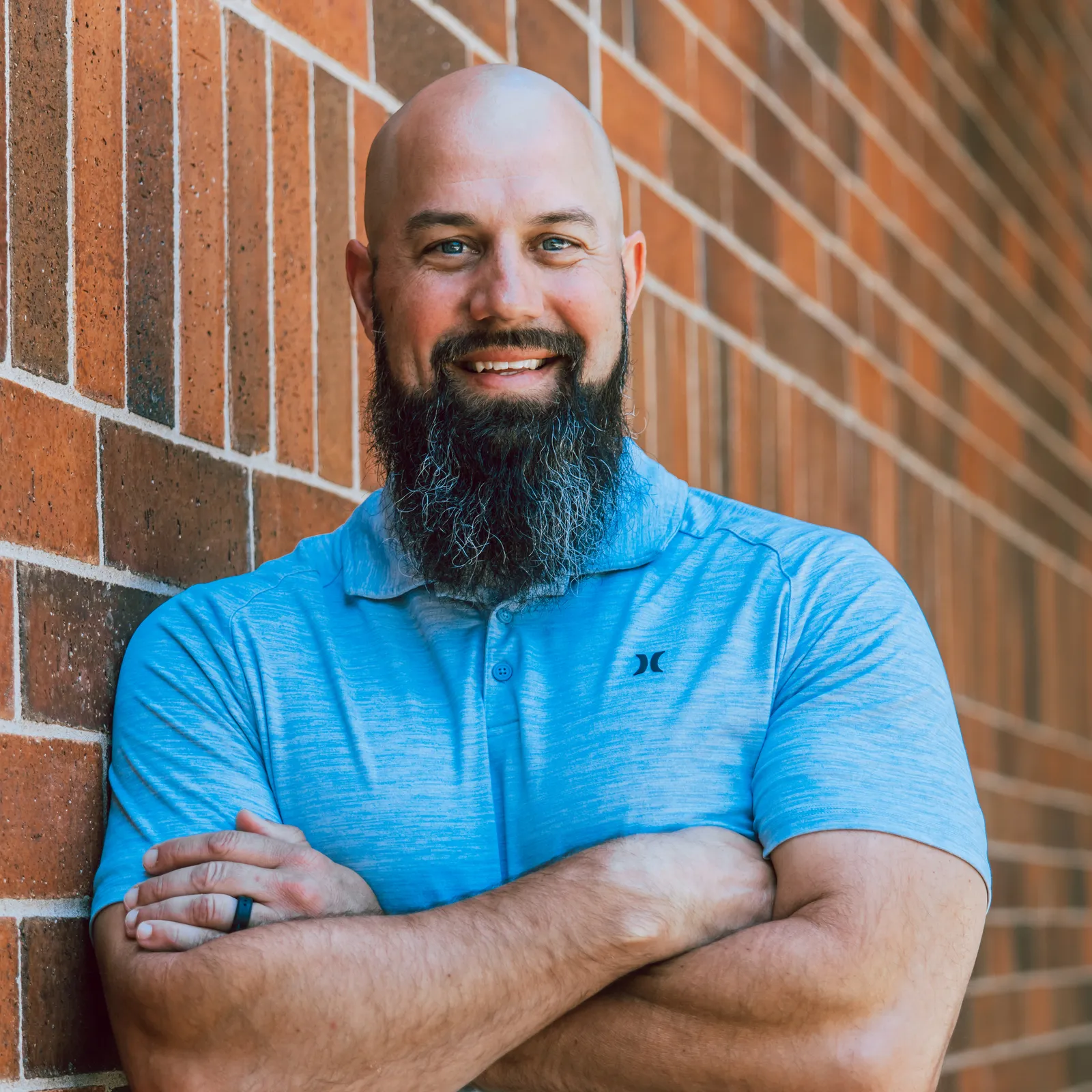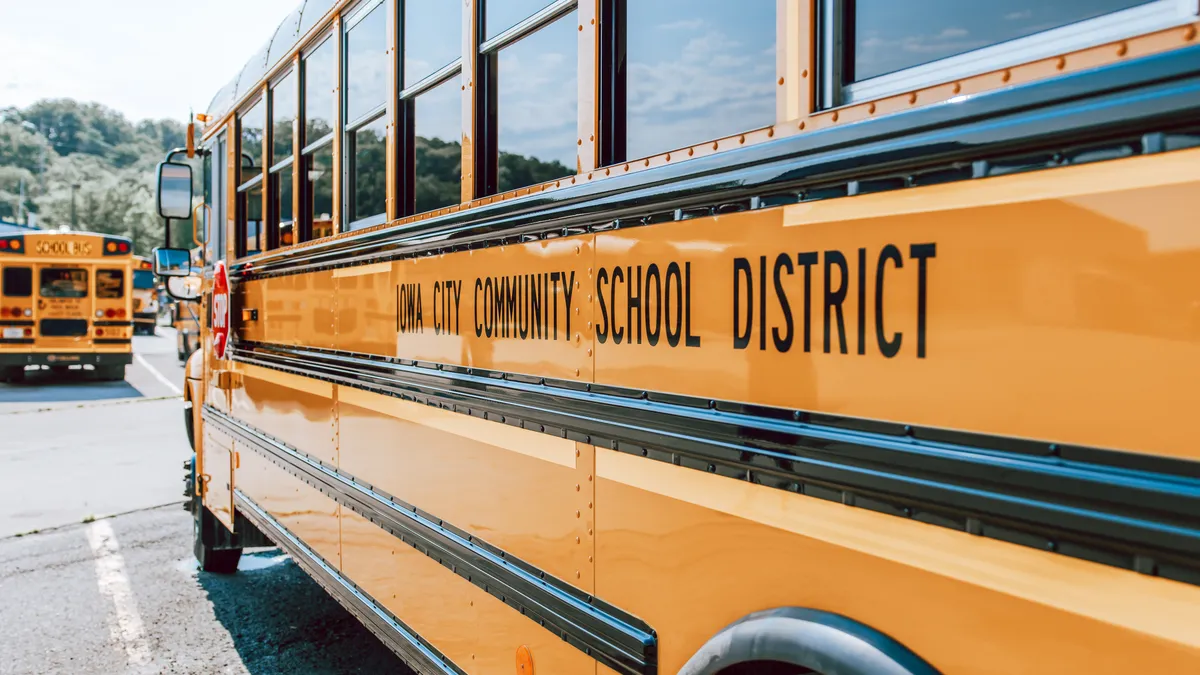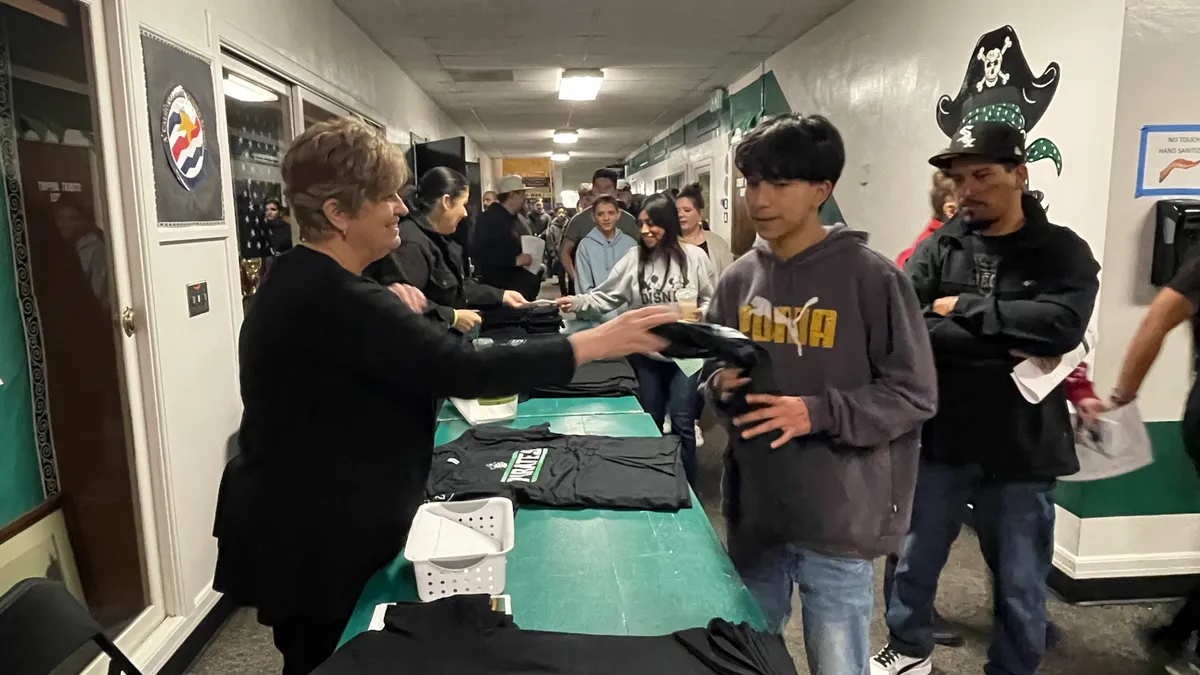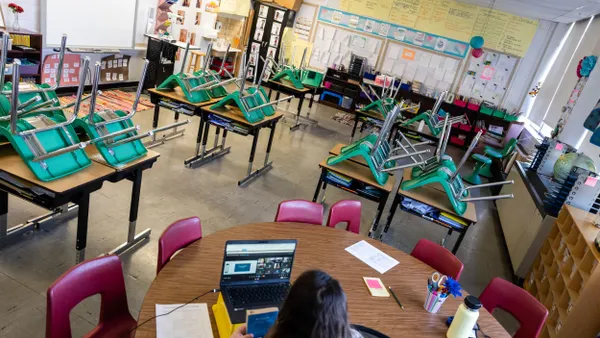When Iowa City Community School District began exploring artificial intelligence use for students and staff in 2023, those spearheading the effort took a “go slow to go fast” approach.
With administrators in the 14,000-student district realizing AI wasn’t going away, they began to consider early steps for developing guidance, said Andrew Fenstermaker, the district’s instructional technology coordinator.
Fenstermaker formed an AI work group representing a variety of voices in the district, including students, administrators, support staff and community members. The group then spent the 2023-24 school year drafting student and teacher AI guidance. In May, the school board updated policies to reflect the AI drafted guidance as recommended by the work group, Fenstermaker said.
When Iowa City Schools students return to school on Aug. 23 for the 2024-25 school year, the district will be implementing a new curriculum that teaches them how to safely use AI, Fenstermaker said. The age-appropriate AI lessons are required by the school board.
The curriculum, for example, teaches the basics of using AI to K-2 students, along with discussing the technology's pros and cons. Students in higher grade levels will dive deeper into safe and responsible use of AI, he said.
Preparing districtwide AI guidance
Iowa City is certainly not alone in having worked on this issue in the last year.
This school year marks the second in which districts are having to navigate both the opportunities and challenges of generative AI in classrooms since ChatGPT entered the public eye in November 2022.

As of June, 15 states had released AI guidance for education leaders. And policymakers and industry leaders are continuing to develop guidance and frameworks for schools.
While some school systems are still wary of bringing AI into their schools, others are pushing forward as the 2024-25 school year gets underway.
Here are four takeaways from Fenstermaker on how Iowa City Schools approached the adoption of AI.
1. Develop an AI champion group
Over the summer, Fenstermaker put together an AI champion group with teacher representatives from each school building across the district.
The group is to meet monthly starting this fall, with three overarching goals in mind:
- Understanding generative AI and its applications and implications for K-12 education.
- Developing skills for using and applying AI tools effectively in the classroom.
- Evaluating AI-powered tools, their functionality and outputs.
Fenstermaker developed those goals using the AI literacy framework from Digital Promise, a nonprofit that advocates for equitable learning environments through technology.
The AI champion group provides an opportunity to hear from a wide range of stakeholders, which will better inform the district as it continues to map out AI guidance, he said.
“The thing that I’m personally most excited about is probably the AI champion group,” Fenstermaker said. “That will be the opportunity for me to partner with a group of teachers that are in the space with students in real time every day and navigating that landscape.”
2. Test out guidelines
Iowa City Schools’ draft AI guidelines will be tested in grade 6-12 English Language Arts classes during the new school year, Fenstermaker said.
The district will collect feedback from those classes and continue to refine the guidelines. From there, Iowa City Schools hopes to implement them on a larger scale and include them in a student handbook by summer 2025, he said.
“Potentially, other districts are really wanting to go really, really fast and have all these things rolled out,” Fenstermaker said. “But the reality is, with it being such a complex, new thing that we’re trying to navigate with what is safe and responsible ethical use. And what it looks like in Iowa City is going to be different from other districts out there.”
The district tapped into guidance from other nonprofit organizations when developing its AI guidelines, Fenstermaker said. However, he added that it’s crucial to tailor outside guidance to your district’s needs.
What does Iowa City Schools’ AI guidance draft do?
The following direction is drawn from the Iowa City Schools AI policy drafted for the 2024-25 school year:
-
Students are prohibited from using generative AI for academic tasks “in any form.” However, the tool can be used to clarify academic content, to brainstorm or to gain feedback for improvement on an assignment. Students must cite that they used generative AI in their work.
-
Students may not use AI tools for cheating or plagiarism. Nor can they use AI to bully, harass or harm another student physically or emotionally. If a student is suspected of violating the academic code of conduct, the district can respond per board policy.
-
Teachers are prohibited from using generative AI to create content that replaces the district’s core curriculum. Teachers must also avoid using AI to replace their role as a human educator instructing students. They cannot use AI to compromise teacher or student data privacy. Teachers must only use AI apps vetted by the district.
-
Given the potential inaccuracies of AI detectors, teachers should use multiple approaches when navigating suspicions that a student violated the academic code of conduct with AI.
-
Overall, the district encourages teachers and students to be aware of the potential biases and potential fake information AI can generate.
3. Vet new technology
This fall, Iowa City Schools is rolling out a software vetting process for all ed tech tools, including those using generative AI.
Fenstermaker said this “will allow us, as a district, to really ensure that we are safeguarding the ways in which we’re leveraging instructional technology in the classroom spaces to ensure that there’s no cybersecurity issues, no data privacy issues.”
The process is part of updated school board policies calling for proper vetting of generative AI tools and resources, he said.
The district tested the vetting process last school year with one generative AI tool — MagicSchoolAI — so teachers could try it and provide feedback to administrators.
When MagicSchoolAI was vetted, the company became the first AI-related app developer to sign a student data privacy agreement with the district, Fenstermaker said. The AI tool has the capability to help educators write lesson plans, create assessments and effectively communicate, according to the company’s website.
4. Lean on partnerships
Digital Promise is currently working with 10 different school district leaders to help craft guidance regarding responsible and acceptable AI use for teachers and students, said Pati Ruiz, the nonprofit’s senior director of ed tech and emerging technologies. Ruiz also highlighted how Iowa City Schools, in its partnership with Digital Promise, developed AI guidance early on when there were few concrete examples to follow.
As Iowa City Schools prepared to further explore AI, the partnership became key as the nonprofit advised the district to establish a task force to gather perspectives from the school community, Fenstermaker said.
For other district leaders looking to implement AI, Fenstermaker advises that they lean into their stakeholders.
“Make sure you have great representation listening to the voices of all the stakeholders,” he said. “Find ways to build teacher and student capacity. At the same time, make sure you have those guardrails in place, so that as they navigate the landscape that it’s within those constraints.”
Iowa City Schools has also found it useful to bounce ideas off of neighboring districts, he said. The partnership with Digital Promise has helped the district to expand its network, connecting with educators across the state to understand what does and doesn’t work with AI use in schools.
“Realize the fact that you don’t have to tackle this alone. It’s a community journey. Let’s tackle it together,” Fenstermaker said.

















